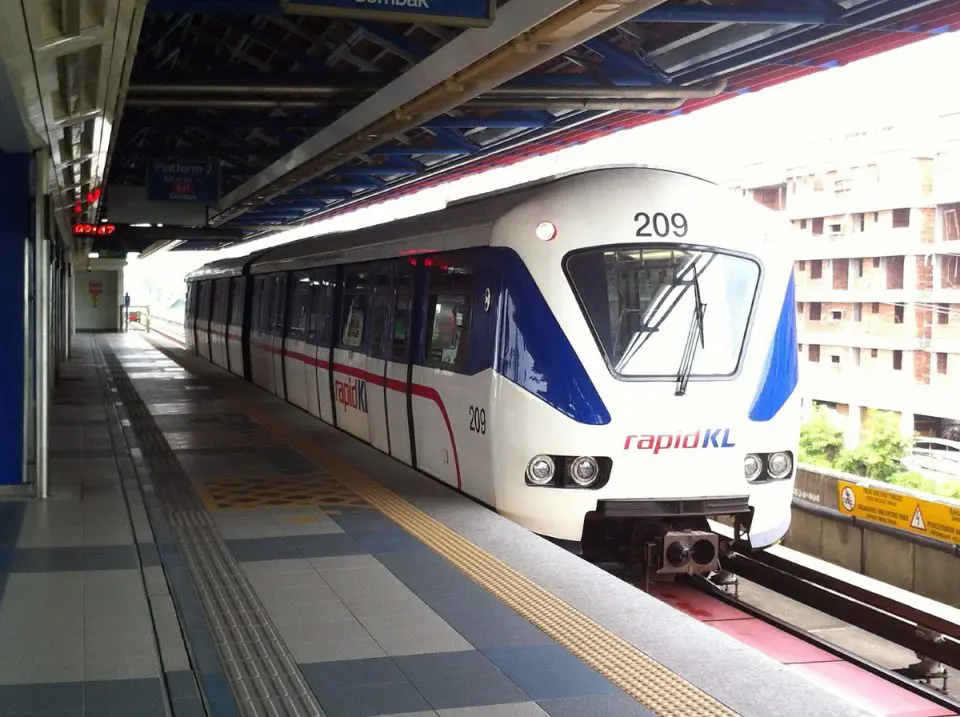By Amar Shah Mohsen
KUALA LUMPUR, Oct 2 — The reinstatement of the five previously shelved Light Rail Transit 3 (LRT3) stations will not delay the opening of the service, Transport Minister Anthony Loke Siew Fook has confirmed.
Speaking in the Dewan Rakyat, he said the 37.8km Shah Alam Line will begin operations as scheduled on March 1, 2025, involving 20 stations, with 89 per cent of works already completed as of September this year.
Phase two of the project, which consists of the construction of the five stations, will be completed by the second quarter of 2027, he added.
“To ensure the safety and comfort of passengers, safety assessments will be conducted on the LRT3 operations during the construction of the five stations,” he said in his winding up speech for the Budget 2024 in Parliament today.
On October 13, during the tabling of the budget, Prime Minister Datuk Seri Anwar Ibrahim announced that the government had agreed to put the five shelved stations back on track, namely Tropicana, Raja Muda, Temasya, Bukit Raja, and Bandar Botanik.
He said the project will set the government back an estimated RM4.7 billion.
Explaining the high cost, Loke said the allocation will be used, among other things, to procure three new sets of three-car trains to maintain the frequency of trains on the line at six minutes.
He said with the additional stations and new trains, the government also needed to upgrade its train depots by adding new tracks, equipment and maintenance vehicles, apart from other taxes and duties to be made to various parties.
“Funds will also be used for the purposes of land acquisition, insurance premiums and annual fee payment to the Institution of Civil Engineers for delayed works, among others,” he said.
Additionally, Loke said allocation is needed to procure new buses to cater to the 25 stations, as well as acquire lands for the construction of three new bus depots.
Elaborating, he said about RM210 million will be used to purchase 150 electric buses, while approximately RM390 million is needed to build the depots, which will be equipped with charging stations, covered parking, washing plants, and Tenaga Nasional Bhd’s power facility.
On the decision to opt for electric buses, the minister said the total cost of ownership is much lower compared to diesel-powered vehicles. Similarly, it is cheaper to repair and maintain electric buses compared to conventional ones, he noted.
Responding to queries on the move to purchase the buses rather than lease, he said the government found that leasing would cost much more, although it would not require high initial capital.
HSR revival must include Singapore
On a separate matter, Loke said any plans to revive the High-Speed Rail (HSR) project, which will be privately funded, must include Singapore as its final destination.
He explained that it would be unviable to end the line in Johor Bahru and not connect Kuala Lumpur and Singapore, considering both are considered among key cities in Southeast Asia.
In this regard, he said any proposal to bring back the project back to life will require the approval of the island state.
“At the moment, we are at the request for information (RFI) stage. Several private firms have expressed interests (to undertake the project) and submitted their proposals. Some requested additional time to finalise their proposals, and we are considering it.
“We want to find a suitable financing method before we propose to Singapore… Whatever proposal must also be agreed by Singapore.
“So once the RFI is completed, we will table it in Cabinet and if approved, we will initiate discussion with Singapore.”
He was responding to a question from Pagoh MP Tan Sri Muhyiddin Yassin if the HSR revival will involve the neighbouring country after Malaysia scrapped the original project which would have connected Kuala Lumpur to Singapore.
On January 1, 2021, Malaysia and Singapore jointly announced the termination of the HSR project as both countries failed to reach an agreement on changes proposed by Malaysia before the project agreement lapsed on December 31, 2020.
As a result, Malaysia had to pay S$102.8 million to Singapore as compensation for costs incurred for the development of the project and in relation to the extension of its suspension.





